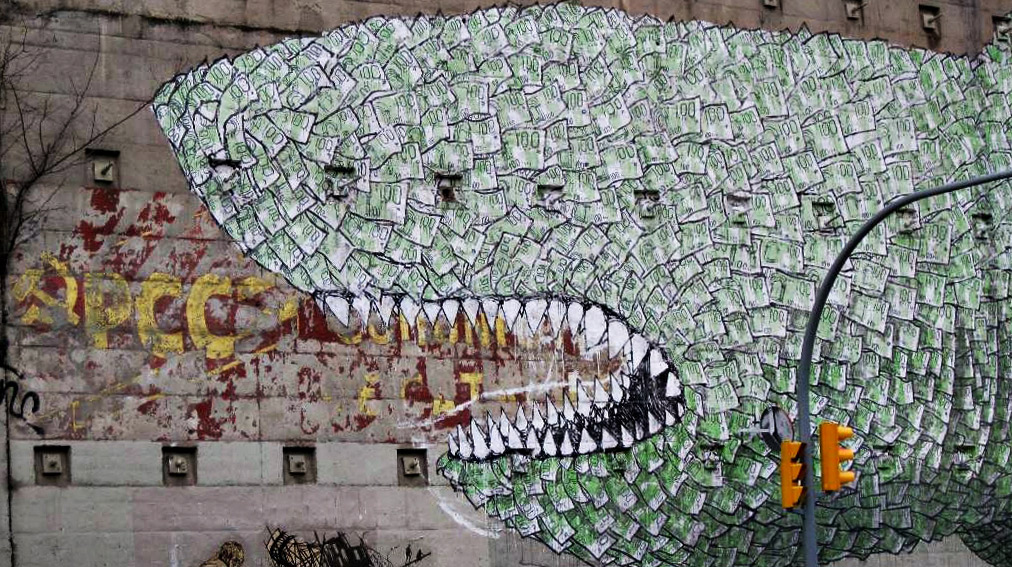In the sixth part of my book «Make The Sky Bloom», I spent few words explaining how this crisis is not a barrier, it’s not something negative, but, instead, it might be something positive, an opportunity. The word crisis comes from the ancient Greek κρiνω that means to decide, to choose, and therefore to change. That’s why there are other words with the same etymology but with different (and more positive) meaning. Like chrysalis.
Let’s think of the many powerful companies that now dictate the rules of Dow Jones. They were all born during a time of crisis. Alcoa, Coca-Cola, Johnson & Johnson, ExxonMobil, General Electric and Chevron were founded during the Great Depression in the late nineteenth century. Walt Disney during the 1923-1924 recession. Hewlett-Packard and McDonald’s after the 1929 crisis. Bank of Italy, founded in 1904 by Amadeo Giannini and later become Bank of America, owes part of his fortune to the earthquake that devastated San Francisco in 1906, as well as Microsoft Corporation started its activity during the recession of the mid-seventies.
In his book The Future, the French anthropologist Marc Augé writes that in the future historians might speak of the crisis of the hundred years about the period we are today. According to Marc Augé this crisis is actually the continuation of a crisis that the world has been going through for many years (well before the collapse of Lehman Brothers). The twentieth century was a century of crisis, wars, deaths, births, oil-energy-environment shocks, diseases and epidemics. Our history is the result of all these crises. Actually, many of the breakthroughs that make our world a better place arose from these crises. While, paradoxically, many things that make our world a worse place today come from success stories. The economic policy of Reagan, his deregulation, Enron, consumerism and all the great stories of “success” of the past century are the basis of many of the crises that we are living today. Nevertheless, at their time, they had been celebrated as extraordinary political and economic successes.
John Maynard Keynes reminds us that a depression (or crisis as we call it today) can be a great opportunity for growth and recovery. As long as there is the will, especially from the state, to invest and boost the economy. On the other hand, if the crisis turns into a widespread apathy, or into a long lasting austerity, where, as Baumann put it, we even avoid cold water for fear of getting burned, then we come to the paradox that the fear of crisis generates a crisis.
And that leads us to Nietzsche when in his “Ecce Homo” used to point the finger at the good man who doesn’t want, at any price, to see how reality really is and then tries, in any way, to keep the conditions of its existence unchanged, even if that means resorting to lies: «Considering any crisis as an objection, as something to be abolished, is niaiserie par excellence, broadly speaking, a real disaster in its consequences, a destiny of stupidity — practically as stupid as the will to abolish bad weather».
Following this idea, crises are not something to eliminate or avoid but rather they are something to deal with, something to get value out of it. They are a key moment of reflection from which we can learn how to change the kind of thinking that, once, created the problems we are now living. Moving on from the past century to the present, many of the companies that are revolutionizing the economy today had been inspired by crisis, by the need for a person or a community to solve a problem. The online platform Airbnb, now valued $ 10 billion, stems from the founders’s needs to find a solution for the house rental prices of San Francisco. Talking about the Sharing Economy, BlaBlaCar arises from the founder’s need of living in one of the most expensive countries in the world, France, without being able to afford a car. Otherwise if (just like the good man of Nietzsche) we keep on avoiding dealing with the crisis, it would be difficult to get out of it by inertia.
